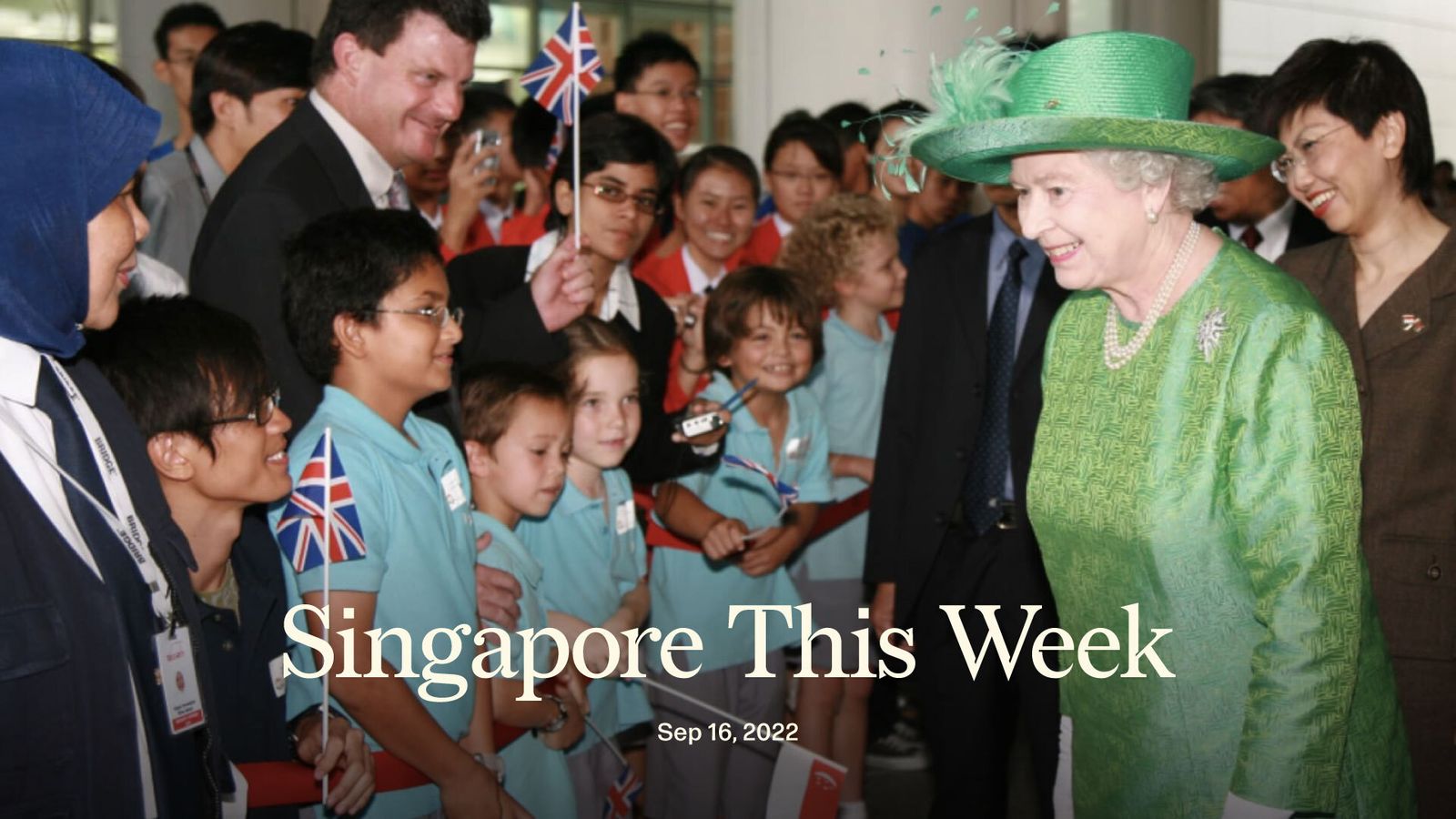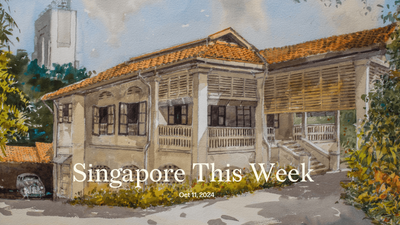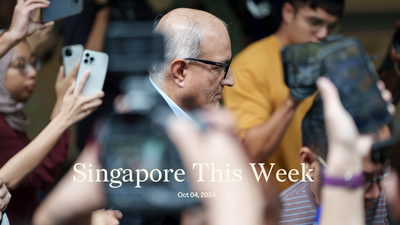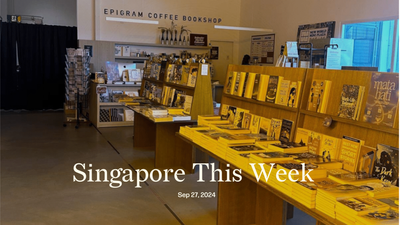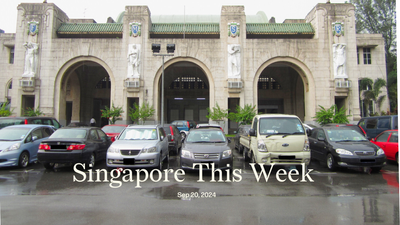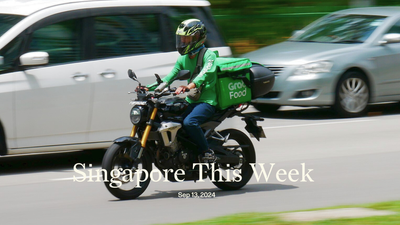Politics: Unelected and (mostly) ineffectual
Singapore’s nominated member of parliament (NMP) scheme was in the spotlight following the launch of a book featuring reflections by 20 former NMPs, including Anthea Ong, project lead and editor. The People’s Action Party (PAP) launched the scheme in 1989 as a way, ostensibly, to infuse diverse voices into a parliament it dominated. Non-partisan sectoral leaders could, in theory, speak about controversial issues without worrying about constituents and re-election. Critics have long complained about everything from the opaque selection process to the undermining of democratic norms. Ong must be commended for corralling a wide range of views on the scheme, many supportive, but some damning. Laurence Lien speaks about being castigated by the establishment as “against us”. Viswa Sadasivan suggests that NMPs seeking renomination cannot speak freely. (Read: they may not fear constituents, but they do fear the PAP-led selection committee.) The rare, frank insights into parliamentary backchat and proceedings are reasons enough to read this. In 1989, the opposition was limp and there was no easy way to air novel views. Today, the notion that Singaporeans need “leaders” who are anointed in shadowy circumstances to represent us reflects a hierarchic worldview. The scheme has “outrun its course”, says Braema Mathi. Betul.
Society: The state wants your DNA
Singaporean police will now be able to forcibly collect the DNA of people who commit a wide range of offences, from drunk driving and obstructing a public servant discharging their duties, to “mischief”. Local mischief offenders include a man who spray painted the word “anarchy” and another who pulled the wiper of a bus. In justifying this move, the government said that in 2017-21, one out of three people convicted of a more serious “registrable” crime, such as cheating and molest, had been previously convicted of a lesser offence. Collecting their DNA earlier, so it goes, would have accelerated their arrest. Yet Singapore is not a cowboy town where criminals run free for years. Any benefits must be balanced against privacy and security concerns, especially when data breaches are not uncommon. Privacy intrusions in the public sphere should be limited, and in a democratic society only enacted following comprehensive public deliberation about the trade-offs. These latest measures do not meet this standard. The bill takes Singapore down a slippery DNA slope. In an article about China’s ongoing campaign to collect the DNA of Tibetans, Yves Moreau of the University of Leuven in Belgium told The Economist that DNA collection appeals to authorities who have a “fetish for control”. It’s one that a number of Singaporean ministers appear to share.
Society: State your symbols
Can a set of words be considered a state symbol? Apparently so, after Singapore formally recognised its national pledge as one, as part of a new National Symbols Bill, which replaces the Singapore Arms and Flag and National Anthem Act of 1959. The question is how much of the pledge would have to be misused for it to be considered an offence: one line, or any number of words as long as it can be recognised as coming from the pledge? Besides the lion head and public seal, our national flower, the Vanda Miss Joaquim, has also been named a state symbol. Can one be held liable for misusing the live orchid or just its representations? If these questions seem trivial, consider the fact that for abuse you could be fined up to S$30,000 and/or jailed for up to six months. The updated Bill will also give authorities the flexibility to respond to legitimate requests to use symbols, like the national flag and anthem, in more creative ways, while protecting them from inappropriate usage. One hopes that all this helps Singaporeans simply understand the original symbols better. If the mispronunciation of “mari kita” was prosecuted, our courts would be choked.
Society: Making public home ownership more reflective of society
Given Singapore’s red-hot housing market, the issue of lowering the eligibility age of singles to buy subsidised Build-to-Order (BTO) Housing Development Board (HDB) flats has been revisited in Parliament. Louis Chua, the Workers’ Party (WP) MP for Sengkang, has called once more for the minimum age to be reduced from 35 to 28. (Pritam Singh, WP’s leader, had proposed the same in March.) Chua has also suggested offering Central Provident Fund housing grants to singles on a tiered scale, where grants are set at a lower amount and increased up to age 35. One of the arguments for enabling singles to own a home earlier is the fact that in the 25-34 age group, the share of unmarried Singaporeans has been rising. A growing number of them have also been priced out of the private market and HDB rental market. The other reason is to give singles a longer runway to pay off their mortgage, which could also encourage financial security earlier on in life. Singapore’s public housing policy is geared towards encouraging marriage and supporting the traditional family unit. But these driving factors are often criticised for discriminating against citizens who choose not to get married, or are doing so later. Chua urged his peers to ensure that public housing policies are “both inclusive and reflective of the diversity” of society. The change might also lead to healthier and longer-lasting marriages. At the moment, many young Singaporeans feel compelled to marry, perhaps well before they’re ready, just so they can qualify to buy a flat. Further delinking matrimony from home ownership might benefit us all.
Arts: Singapore Literature Festival in New York City
The biennial Singapore Literature Festival in New York City is back this year for its fifth edition (October 6th-8th). The festival was founded by Jee Leong Koh, a Singaporean writer and poet who has lived in the US for almost two decades, and who still organises it. This year’s edition is titled “Archipelago Dreaming”, and will celebrate writing from the greater South-east Asian and Caribbean archipelagos. It may seem odd for a festival birthed by two global cities to be focussing on island groups, though it is very much in keeping with the desire by many Singaporeans for narratives that, in Jee’s words, “counter the confining boundedness of nationalistic imaginations but do not play into the hands of global capital.” Among other attendees will be Cherian George, Singaporean academic, and Anthony Vahni Capildeo, a Trinidadian-Scottish writer (and cousin of VS Naipaul). Those unable to travel to the Big Apple can catch the two virtual events: a video performance by art scene power couple ila and bani haykal, called “Suap Lidah” (“French Kiss”), and a simultaneous open mic held in both Singapore and New York City that will be telecast live via Zoom. The latter will be co-hosted by local open-mic series Spoke & Bird, and the renowned Nuyorican Poets Café in Manhattan.
Arts: Vibes of Nusantara
Fans of classical music will soon have the opportunity to spend an evening with one of the region’s best orchestras, the Jakarta Concert Orchestra. “Vibes of Nusantara” will present a programme of contemporary Indonesian compositions—music written in the tradition of Western classical music, but with deep roots in traditional Indonesian sensibilities. One such piece is “Hentakan Jiwa”, a composition for chamber choir by Ken Steven inspired by Indonesian and Malay traditional dance movements. The composition will be performed by the Batavia Madrigal Singers, winners of the 2022 European Grand Prix for Choral Singing. Tickets for the concert on September 21st are available via SISTIC.
Arts: Tang Da Wu and Yeo Hoe Koon
Pioneering artists Tang Da Wu and Yeo Hoe Koon both currently have work on show at the Nanyang Academy of Fine Arts (NAFA). Tang’s exhibition, “Art School SG”, features site specific installations, drawings, and live performances that grapple with the challenges of learning about and practising art in Singapore—a fitting concern for a show at an institution that has produced some of Singapore’s most luminary artists. Yeo, a NAFA graduate himself, is showing 30 of his recent oil works in “Illumination”, the latest fruit of a rich 60-year career in painting.
History weekly by Faris Joraimi
Jamus Lim of the Workers’ Party (WP) praised colonialism for benefiting Singapore, referencing on Instagram the minute of silence in Parliament for Queen Elizabeth II. While Lim repeated worn-out tropes about our island being spared the worst excesses of imperial brutality seen in other colonies, he also noted that we “contend” with legacies like S377A and racial structures. This pros-and-cons approach obscures how colonialism’s “benefits'' were never intended for locals. Even the seemingly bloodless administration of colonies like Singapore was ultimately meant to further the coloniser’s economic and political interests. Singapore was a base for the extraction of Malayan resources to enrich Great Britain and maintain its global domination of trade. The comforts of Singapore’s wealthy few were built on the suffering of workers near and far. Trade unions and political organisations, including the WP, emerged to overthrow this oppressive system. David Marshall, the WP’s founder, called colonialism “by definition the domination and exploitation of one country by and for another.” He was among the fiercest champions of Merdeka, a word which the WP, unique among local parties, retains in its Constitution today as a guiding principle. It’s unfortunate that Lim seems to have forgotten the historical struggle for freedom fought by his party. A more urgent interrogation, in keeping with Lim’s pet interests, is whether the unfair balance between capital and labour in Singapore has roots in the British Empire’s exploitative capitalist system. The outpouring of grief and fond remembrances in Singapore this past week reveals that six decades of Merdeka haven’t diminished our rosy view of Empire. As Marshall once lamented, he was “even fighting our own people, who were pathetically pro-British.”
Economy: Parallel discourse on inflation
In an essay on Academia.sg, Linda Lim and Nigel Chiang, economists at the University of Michigan, argue that public discourse on inflation in Singapore has been narrow—because it focuses on imported inflation, while ignoring domestic sources, such as high rents and wages, which are rooted in our overall developmental strategy. Large foreign capital inflows, from the likes of MNCs, have put upward pressure on the Singapore dollar, thus reducing imported inflation: the stronger our dollar, the cheaper, say, oil and chickens from Malaysia. These same inflows, however, have contributed to “skyrocketing commercial, industrial and residential rents, transport and other domestic costs.” A scarcity of talent has also caused wages to rise in several sectors. (Not in academia or journalism, sadly.) Lim and Chiang say that tax hikes on corporations and high earners would be more efficient and equitable than a GST (Goods and Services Tax) rise in terms of fiscal tightening (that would temper inflation). Yet they are well aware that their medium-term structural prescriptions fly in the face of accepted orthodoxy about export-oriented, multinational-led growth. Last Sunday, Lim wrote to her followers saying that The Straits Times (ST) had pulled this commentary at the 11th hour and delayed it indefinitely. Academia.sg’s readership will see it; ST’s won’t. Reason for all of us to feel deflated.
Tech: Aaqua sinks underwater
This week, Tech in Asia broke the story of how Aaqua, a Dutch social media start-up, had lied about investments from Apple and LVMH and had to lay off more than 180 employees. The firm had already raised eyebrows with its swanky office in Asia Square, and numerous well-paid former TikTokers and Twitterers—despite not having launched a product. Since it was founded two years ago, Aaqua has reportedly spent millions on product development, engaging companies such as CleverTap, a mobile analytics provider, and Regus, a workspace provider. Both claimed that Aaqua had failed to make payments. Regus closed Aaqua’s Singapore office. A LinkedIn search reveals that Aaqua had hired numerous trust and safety staff, especially from TikTok, just down the street from Asia Square. This was because the company wanted to differentiate itself from other social media networks as one that prioritised trust and safety in having thoughtful content moderation policies, rather than leaving it as an afterthought. If it had established trust with other stakeholders, Aaqua might still be afloat.
Tech: Adios, Shopee
Things keep getting worse for Sea Group. Shopee has shut down its entire operations in Argentina and closed local operations in Chile, Colombia, and Mexico to focus on a cross-border model. This is significant because Latin America is Sea’s second largest market after South-east Asia, accounting for almost 19 percent of revenue in 2021. Furthermore, Shopee’s revenue in Brazil rose by more than 270 percent from a year earlier based on Q2 earnings results. It now appears that Shopee’s significant investments in brand building in Latin America for over a year have come to naught. This is not its first retreat, however. Earlier this year, Shopee pulled out of India and France in March, then Spain in June. It also laid off staff in Singapore recently, with the Sea Group leadership team announcing that they would forgo salaries until the company reaches self-sufficiency. Beyond the significant cost-cutting measures globally, there is a looming recession and an increasingly apparent slowdown in e-commerce sales that haunts Shopee. While too early to tell if these moves will make a dent on the balance sheet, perhaps this might turn out to be a strategic regrouping.
Tech: Temus, Temasek’s new kid
Despite only being established in April 2021, Temasek-backed Temus has already made its first acquisition of Dreamcloud, a low-code platform for software application development. The deal will help Temus, which bills itself as a digital transformation firm, further develop its platform through Dreamcloud’s tech capabilities. There is a deeper question over Temus’s raison d'être. Its parent company, UST Global, an American digital services firm, joined the unicorn club after a US$250m (S$351m) investment from Temasek in 2018, purportedly to help it expand into South-east Asia. Temus appears like the experimental child for this foray. Temus has been rapidly hiring over the last one year and currently has around 200 staff. The company aims to expand that by five times over the next three years and acquisitions seem like one way to achieve that goal. Temus has chosen an interesting niche to serve: public sector agencies, a space currently led by Singtel-owned NCS. Singtel’s largest shareholder is Temasek. Is Temasek inciting sibling rivalry here by increasing the competition for public sector IT services? It’s unclear whether the fast-growing Temus can eventually outcompete NCS Group, but this is definitely a space to watch.
If you enjoy Jom’s work, do get a paid subscription today to support independent journalism in Singapore.

